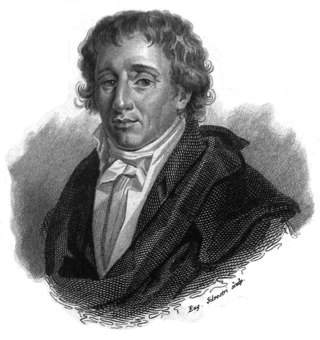Ippolito Pindemonte
Italian poet (1753–1828) From Wikipedia, the free encyclopedia
Ippolito Pindemonte (November 13, 1753 – November 18, 1828) was an Italian poet. He was an exponent of Italian neoclassicism and pre-romanticism, with poems of the pastoral genre and related to graveyard poets style.
Biography
Summarize
Perspective
Ippolito Pindemonte was born in Verona on 13 November 1753. Hewas educated at the Collegio di San Carlo in Modena, but otherwise spent most of his life in Verona.
He was born into an aristocratic family, and travelled a great deal in his youth. He was a close friend of the mathematician and translator Giuseppe Torelli (1721–1781) and the scholar Girolamo Pompei.[1] His brother Giovanni Pindemonte was a prominent dramatist.[2]
Pindemonte witnessed and was deeply affected by the French Revolution, residing in Paris for ten months during 1789, then rejecting the results of the reign of Terror and fleeing to Italy.[3] He later spent time in England and Austria.
A Romantic poet, he was principally influenced by his friend Ugo Foscolo and Thomas Gray, and was associated with the Della Cruscans. He devoted much of his life to a translation of the Odyssey, which was published in 1822.[4]
Foscolo's poem Dei sepolcri ("Sepulchres") is dedicated to Pindemonte, and is a response to Pindemonte's unfinished poem I cimiteri ("The cemeteries" or "The churchyards"). Pindemonte is also the author of another of a poem of the same name Dei sepolcri, dedicated to Foscolo, and of the short poem La melanconia ("Melancholy"), set to music by Vincenzo Bellini in the arietta Malinconia, Ninfa gentile.
Works
Pindemonte and Villa Mosconi Bertani
See also
External links
Wikiwand - on
Seamless Wikipedia browsing. On steroids.

